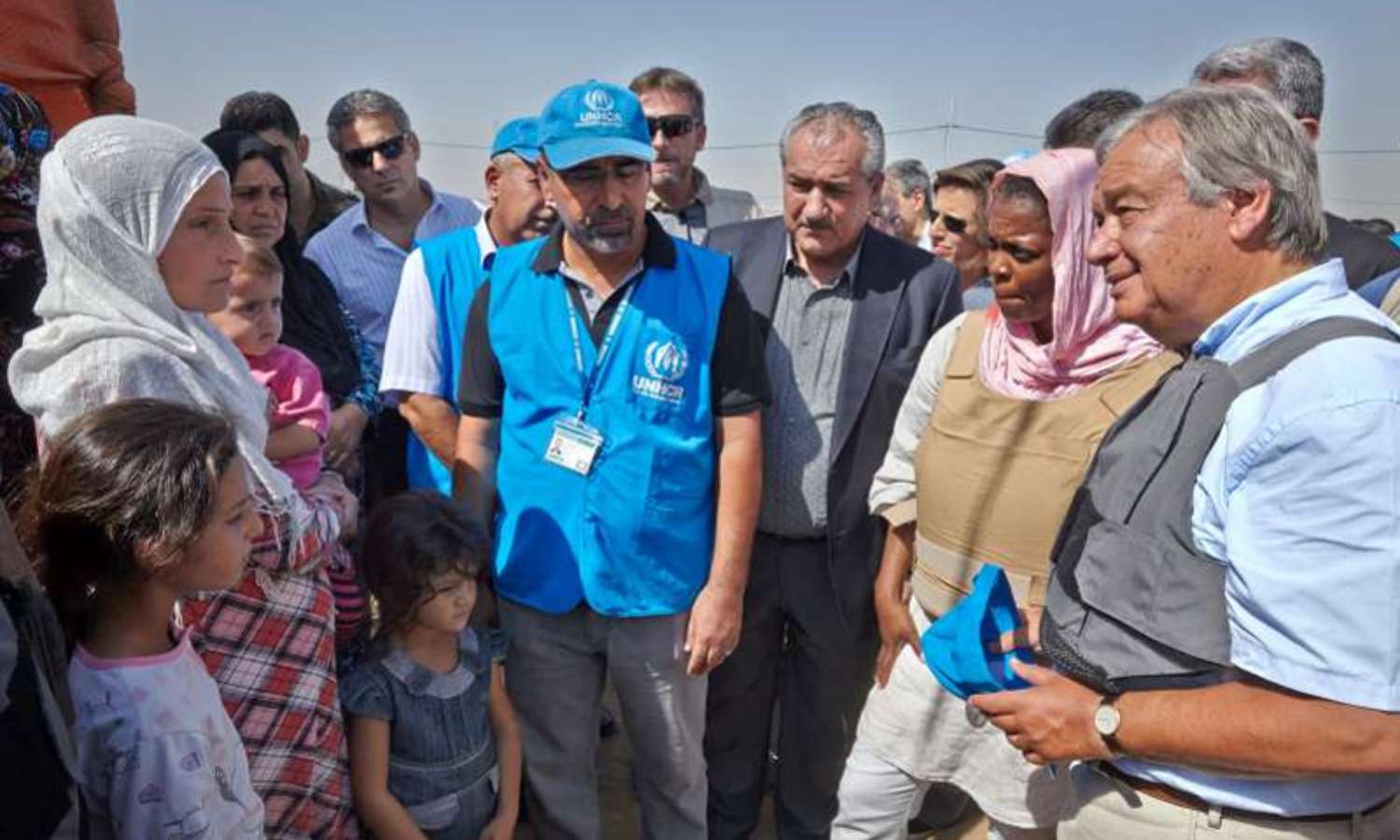



Human Rights Watch (HRW) said that authorities in Baghdad and Erbil detained Syrians and arbitrarily deported them to Damascus and parts of northeastern Syria under the control of the Autonomous Administration of North and East Syria (AANES), despite some possessing official documents allowing them to stay and work in the country or being registered as asylum seekers with the UNHCR.
The organization reported in a statement issued on Thursday, June 28, that people detained by Iraqi authorities were arrested in raids at their workplaces or on the streets.
Two detained Syrians stated that they were arrested at the residency offices while trying to renew their permits and that authorities did not consider their asylum claims.
These decisions also do not provide consistent opportunities to appeal the deportation orders issued against them.
In August 2023, the Iraqi Supreme Judicial Council banned the deportation of any Syrian refugee. However, last March, Iraqi authorities launched a campaign targeting foreigners who violate residency rules, leading to the detention and deportation of many Syrians after raids on their homes and workplaces.
On April 3, the Kurdistan Regional Government suspended issuing visas to Syrians, at the request of the federal government in Baghdad, amid broader efforts to regulate foreign labor.
Human Rights Watch said a 43-year-old Syrian man from Aleppo was arrested at a checkpoint in Diwaniya, south of Baghdad. After 12 days of detention, he was brought before a judge and presented his UNHCR asylum seeker certificate, but to no avail.
The Syrian man was fined and ordered to be deported to Syria. Despite appealing, his lawyer said the chances of success were slim.
The organization quoted the same refugee saying, “My life is in danger in Syria […] I cannot return to Aleppo, and I don’t want to go to northeastern Syria.”
Human Rights Watch noted that the man’s 16-year-old son had been detained in the Karrada district of Baghdad since April 14 for violating residency laws, while his other son had been detained since March 19 for the same reason and had not been brought before a judge.
The organization also included testimony from a 25-year-old man from As-Suwayda in southern Syria. He said, “Since the Iraqi government announced the expulsion of all illegal workers, every day, or at least three times a week, the police come to my workplace looking for me.”
“My employer and other employees warn me, so I run and hide, while another employee covers for my position. They always ask the staff if there are any Syrians working there,” the young Syrian said.
He added that the situation in As-Suwayda is unstable, with many different militias, and when they find out that an expatriate has returned to the city, they kidnap him for ransom.
The report noted that Iraq is not a signatory to the 1951 Refugee Convention or its 1967 Protocol.
The 1971 Political Refugees Law “No. 51” recognizes political refugees and “military” refugees, but the government stopped granting refugee status to Syrians who arrived after 2011.
The UNHCR registers Syrians in federal Iraq and issues them asylum seeker certificates, which they can use to register with the Permanent Refugee Committee of the Ministry of Interior and are classified as “displaced from Syrian border areas admitted for humanitarian reasons.”
“Displaced” individuals are issued personal identity cards that exempt them from the foreign residency law.
Meanwhile, the Kurdistan Regional Government recognizes Syrians as asylum seekers, granting them the right to obtain humanitarian residency permits after registration with the UNHCR.
According to the Human Rights Watch report, Iraq hosts approximately 280,000 Syrians, the vast majority of whom reside in the Kurdistan region of Iraq.
While parts of Syria have not seen any active hostilities since 2018, Syria remains unlivable, according to the organization. It considered that deporting asylum seekers constitutes a “violation of Iraq’s obligations as a party to the UN Convention against Torture” and the principle of non-refoulement in customary international law, that is, not forcibly returning people to countries where they face a clear danger of torture or other forms of persecution.
if you think the article contain wrong information or you have additional details Send Correction